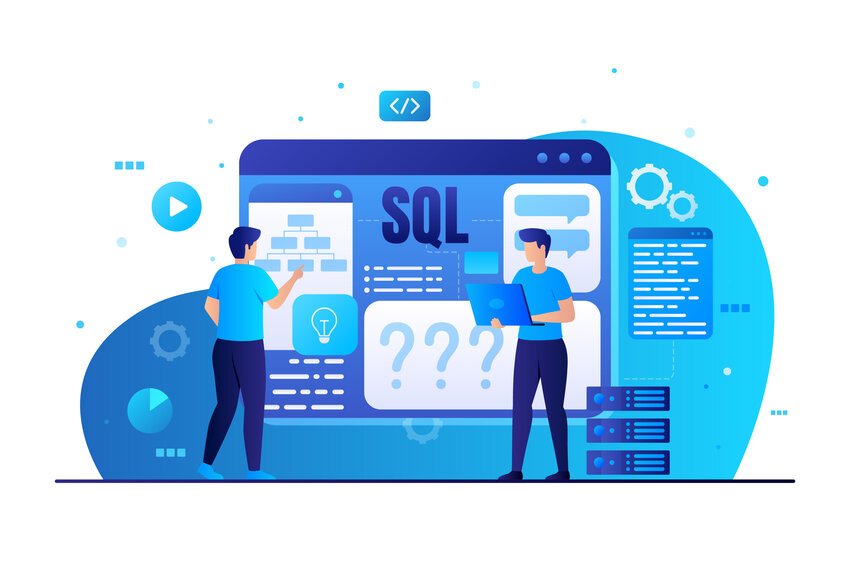Artificial Intelligence (AI) is revolutionizing various industries, ranging from healthcare to finance, and from transportation to entertainment. AI engineers play a crucial role in developing and implementing AI systems and technologies. They design algorithms, build models, and create intelligent machines that can perceive, reason, and learn. With the demand for AI engineers on the rise, now is an excellent time to explore this rewarding career path.
Is AI Engineer and Web Designer The Same?
Web Designer
Web Designers specialize in creating visually appealing and user-friendly websites. They possess a strong sense of aesthetics and an understanding of user experience (UX) principles. Web Designers employ various tools, including graphic design software, to develop website layouts, typography, color schemes, and interactive elements that enhance the user journey.
Web Designers are adept at HTML, CSS, and JavaScript, which are the building blocks of web development. They work closely with clients or stakeholders to understand their requirements, develop wireframes and prototypes, and translate them into visually compelling websites. Web Designers also consider factors such as responsiveness, accessibility, and search engine optimization (SEO) to ensure their designs meet industry standards.
Web Designers are responsible for creating intuitive navigation systems, clear call-to-action buttons, and engaging visual elements. They strive to deliver seamless user experiences that align with the goals and brand identity of the websites they design. Additionally, Web Designers stay updated on emerging design trends and technologies to continually refine their skills and deliver innovative designs.
AI Engineer
AI Engineers are specialists who possess an in-depth understanding of artificial intelligence technologies. They focus on developing AI systems and algorithms that can learn from and analyze vast amounts of data. AI Engineers work at the intersection of computer science and data analysis, utilizing machine learning, deep learning, and other AI techniques to create intelligent systems.
These professionals typically have a strong background in mathematics, statistics, and programming. They possess advanced knowledge of programming languages such as Python, R, or Java and are proficient in data manipulation and analysis. AI Engineers are responsible for designing, implementing, and optimizing AI models and algorithms, ensuring they function accurately and efficiently.
Furthermore, AI Engineers work with large datasets to train machine learning models, improving their ability to make accurate predictions and decisions. They are skilled in data preprocessing, feature selection, and model evaluation. AI Engineers also explore cutting-edge AI technologies, keeping themselves up-to-date with the latest advancements in the field.
How to Become an Artificial Intelligence (AI) Engineer in 2023?
Develop a Strong Foundation in Mathematics and Programming
To become an AI engineer, you need a solid foundation in mathematics and programming. Mathematics concepts such as linear algebra, calculus, and probability theory are essential for understanding the algorithms and models used in AI. Proficiency in programming languages like Python, Java, or C++ is also crucial as most AI applications are developed using these languages.
Earn a Degree in Computer Science or a Related Field
While not always mandatory, obtaining a degree in computer science or a related field can significantly enhance your prospects of becoming an AI engineer. A bachelor’s degree provides you with a comprehensive understanding of computer science principles, algorithms, data structures, and software development. It also exposes you to courses that cover machine learning, data science, and artificial intelligence.
Consider pursuing a master’s degree in AI or a specialized program that focuses on machine learning and AI if you want to further enhance your knowledge and skills in this field. You may also opt for specific online courses, such as an online master’s in engineering with a specialization in robotics. These advanced degrees can give you a competitive edge in the job market and provide you with more in-depth knowledge of AI technologies.
Gain Hands-on Experience with AI Tools and Frameworks
To stand out as an AI engineer, it’s crucial to gain practical experience with AI tools and frameworks. Familiarize yourself with popular machine learning libraries such as TensorFlow, PyTorch, and scikit-learn. These libraries provide a wide range of functions and algorithms that are commonly used in AI projects.
Additionally, work on real-world AI projects and build your own AI models. Participate in Kaggle competitions or contribute to open-source AI projects. These experiences not only allow you to apply your knowledge but also demonstrate your practical skills to potential employers.
Specialize in a Specific AI Domain
Artificial intelligence is a vast field with numerous domains and applications. Consider specializing in a specific AI domain to distinguish yourself as an AI engineer. Some popular domains include natural language processing (NLP), computer vision, robotics, and recommender systems. By focusing on a particular area, you can develop expertise and gain deeper insights into the challenges and solutions specific to that domain.
Stay Updated with the Latest AI Research and Trends
The field of artificial intelligence is evolving rapidly, with new advancements and research being published regularly. To stay at the forefront of the industry, it’s important to stay updated with the latest AI research and trends.
Follow reputable AI publications, attend conferences and workshops, and join AI communities and forums. Engaging with the AI community allows you to network with professionals in the field and learn from their experiences. It also helps you stay informed about emerging technologies, best practices, and potential career opportunities.
Cultivate Strong Problem-Solving and Analytical Skills
As an AI engineer, you will often encounter complex problems that require analytical thinking and creative problem-solving skills. Cultivate these skills by practicing algorithmic problem-solving exercises, participating in coding competitions, and working on challenging projects. Sharpening your problem-solving and analytical skills will make you more effective in designing AI systems and addressing the unique challenges that arise in the field.
Collaborate and Communicate Effectively
AI engineering is not a solitary endeavor. It requires collaboration with teams comprising data scientists, software engineers, and domain experts. Developing strong collaboration and communication skills is crucial for effective teamwork and project success. Enhance your ability to work in teams, actively listen to others’ perspectives, and clearly articulate your ideas and solutions.
Build a Strong Professional Network
Networking is an essential aspect of any career, including AI engineering. Connect with professionals in the field, attend industry events, and join relevant professional associations or groups. Building a strong professional network opens doors to mentorship opportunities, job referrals, and valuable insights from experienced AI practitioners. It can also lead to partnerships and collaborations on AI projects.
Seek Internship or Entry-Level Positions
To kickstart your career as an AI engineer, consider seeking internship or entry-level positions in companies that specialize in AI or have AI departments. These opportunities provide hands-on experience, mentorship, and the chance to work on real-world AI projects. They also serve as a stepping stone to more advanced roles and help you establish a track record in the field.
Never Stop Learning and Exploring
Artificial intelligence is a field that is constantly evolving, so it’s important to adopt a mindset of continuous learning. Stay curious, explore new technologies, and be open to expanding your skill set. Take online courses, pursue certifications, and attend workshops to keep enhancing your knowledge and staying up to date with the latest advancements in AI.
Ethical Considerations in AI Engineering
As AI technologies become increasingly ubiquitous in our daily lives, it’s essential to consider the ethical implications of their development and deployment. As an AI engineer, it’s crucial to be aware of the potential risks and biases associated with AI systems and work to mitigate them.
Some of the ethical considerations in AI engineering include:
- Bias in AI systems: AI systems can exhibit bias based on factors such as race, gender, and socioeconomic status. This can lead to discriminatory outcomes and perpetuate existing inequalities. As an AI engineer, it’s crucial to develop systems that are fair and unbiased.
- Privacy and security: AI systems often collect and process large amounts of personal data, raising concerns about privacy and security. It’s essential to design systems that protect user data and prevent unauthorized access.
- Transparency and accountability: AI systems can be complex and difficult to interpret, making it challenging to understand their decision-making processes. As an AI engineer, it’s important to develop systems that are transparent and accountable, enabling users to understand how decisions are made and who is responsible for them.
- Social impact: AI systems can have far-reaching social impacts, from job displacement to the perpetuation of harmful stereotypes. It’s essential to consider the potential social consequences of AI systems and work to develop technologies that benefit society as a whole.
Conclusion
Becoming an Artificial Intelligence (AI) Engineer in 2023 requires a combination of technical skills, educational background, practical experience, and a passion for the field. The field of AI offers immense potential, and by following these steps, you can position yourself for a rewarding and impactful career as an AI engineer.
Author Bio:
Tom Koh is the CEO and Principal Consultant of MediaOne, a leading digital marketing agency. He has consulted for MNCs like Canon, Maybank, Capitaland, SingTel, ST Engineering, WWF, and Cambridge University, as well as Government organisations like Enterprise Singapore, Ministry of Law, National Galleries, NTUC, e2i, and SingHealth. His articles are published and referenced in CNA, Straits Times, MoneyFM, Financial Times, Yahoo! Finance, Hubspot, Zendesk, and CIO Advisor.
Read Dive is a leading technology blog focusing on different domains like Blockchain, AI, Chatbot, Fintech, Health Tech, Software Development and Testing. For guest blogging, please feel free to contact at readdive@gmail.com.





